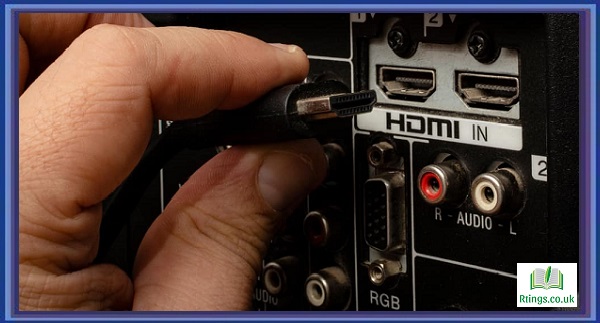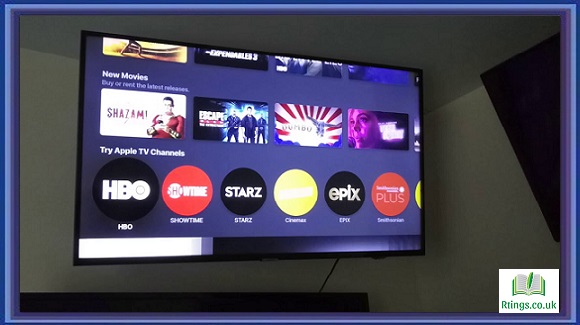In the world of consumer products, where quality and reliability matter significantly, warranties stand as a testament to a manufacturer’s commitment to their products and the consumers who purchase them. A warranty is more than just a legal agreement; it promises performance, quality, and support that provides consumers peace of mind when buying. This comprehensive guide delves into the various dimensions of warranties, their types, significance, limitations, and the rights and responsibilities they entail.
Exploring Warranty
At its core, a warranty is a contract or guarantee that assures a product’s functionality, performance, and condition for a specified period after its purchase. It safeguards against defects and unexpected issues during the product’s usage. Manufacturers, sellers, or retailers often issue warranties, and they outline the terms under which the product will be repaired, replaced, or refunded if it fails to meet the specified criteria.
Types of Warranties
Warranties come in various forms, each designed to cater to different consumer needs and product categories. Understanding these types is essential for making informed purchasing decisions:
Express Warranty
Express warranties are explicit promises made by manufacturers or sellers regarding the attributes and performance of a product. These are often conveyed through written or verbal statements and are part of the marketing and advertising efforts. Express warranties provide consumers with clear expectations about the product’s features, functions, and quality.
Implied Warranty
Implied warranties are not explicitly stated but are automatically applied by law. There are two primary types of implied warranties:
Implied Warranty of Merchantability
This warranty guarantees that the product is fit for its intended purpose and is of acceptable quality. It implies that the product will perform as expected under normal usage conditions.
Implied Warranty of Fitness for a Particular Purpose: When a seller recommends a product for a specific purpose, this warranty ensures that the product is suitable for that purpose, even if it wasn’t explicitly advertised.
Manufacturer’s Warranty
Also known as a factory warranty, the manufacturer provides this type of warranty. It outlines the terms and conditions under which the manufacturer will repair or replace the product if it encounters defects or malfunctions within a specified period after purchase. Manufacturer’s warranties vary in duration and coverage.
Extended Warranty
Often purchased separately, an extended warranty extends the coverage beyond the manufacturer’s warranty period. It is an additional protection plan that can cover repairs, replacements, and sometimes even accidental damage. Extended warranties are particularly popular for high-value or complex products.
The Significance of Warranties
The importance of warranties goes beyond the legal aspects; they have significant implications for consumers, manufacturers, and the market as a whole:
Consumer Confidence
Warranties instil confidence in consumers by assuring them that the manufacturer’s commitment to quality backs the product they purchase. This confidence leads to increased purchasing decisions and brand loyalty.
Product Quality Assurance
Manufacturers who offer warranties are motivated to maintain high standards in their products. The promise of warranty coverage incentivizes manufacturers to ensure that their products meet or exceed consumers’ expectations.
Redress for Defects
Warranties provide consumers with a clear and structured path to address product defects. If a product fails to meet the promised standards, warranties facilitate repairs, replacements, or refunds, thereby protecting consumers from financial losses.
Legal Protection
Warranties are legally binding agreements that set expectations for both parties involved. If a manufacturer fails to honor the terms of the warranty, consumers have the right to seek legal remedies to ensure their rights are upheld.
Limitations and Exclusions
While warranties offer valuable protections, it’s essential to understand their limitations and exclusions:
Duration
Warranties are time-bound. The coverage period varies based on the type of warranty and the product. Once the warranty period expires, the manufacturer’s obligation to provide free repairs or replacements also expires.
Normal Wear and Tear
Warranties typically do not cover damages resulting from normal wear and tear or misuse of the product. This limitation ensures that consumers use the product responsibly and within its intended purpose.
Unauthorized Repairs
If a consumer attempts to repair the product themselves or seeks repairs from an unauthorized service provider, the warranty may become void. Manufacturers want to ensure that qualified professionals handle repairs to maintain product integrity.
Acts of God
Warranties often exclude damages caused by events beyond the control of the manufacturer or the consumer. These events, known as “acts of God,” can include natural disasters, accidents, and unforeseeable occurrences.
Consumer Rights and Responsibilities
Consumers possess certain rights and responsibilities when dealing with warranties:
Right to Information
Consumers have the right to access clear and accurate information about the terms and conditions of the warranty before making a purchase. This information allows them to understand what the warranty covers and what it doesn’t.
Documentation
It’s crucial for consumers to keep all relevant documentation, such as purchase receipts, warranty cards, and user manuals. These documents serve as proof of purchase and help establish entitlement to warranty services.
Proper Product Usage
To avoid voiding the warranty, consumers must use the product as intended and follow the manufacturer’s guidelines for maintenance and care. Negligence or misuse can lead to warranty claims being denied.
Timely Action
If a defect arises during the warranty period, consumers should promptly notify the manufacturer or seller and follow the prescribed process for claiming warranty services. Timely action ensures that the issue is addressed within the coverage period.
Manufacturer’s Responsibilities
Manufacturers also bear certain responsibilities under the warranty agreements:
Honoring the Warranty
Manufacturers are obligated to fulfill the promises made in the warranty. If the product fails to meet the terms outlined, manufacturers should provide the necessary repairs, replacements, or refunds, as specified in the warranty.
Transparent Information
Manufacturers must provide accurate and transparent information about the warranty’s terms and conditions. This transparency ensures that consumers make informed decisions and understand their rights.
Professionalism
Manufacturers should do so in a professional and timely manner when providing warranty services. Respect for the consumer’s time and convenience is essential in maintaining a positive customer relationship.
Fair Practices
Manufacturers should not engage in practices that mislead or exploit consumers when they seek to claim warranty services. Fairness and honesty are paramount in upholding the integrity of the warranty process.
Conclusion
Warranties serve as the bridge between consumers’ expectations and the manufacturer’s commitment to product quality. Understanding the types of warranties, their significance, limitations, and the associated rights and responsibilities is crucial for both consumers and manufacturers. A well-structured warranty system fosters consumer confidence, encourages high product standards, and promotes fairness in the marketplace. In a world where products are integral to our daily lives, warranties are a testament to the symbiotic relationship between consumers and manufacturers who aim to deliver reliable and satisfying outcomes.
Frequently Asked Questions (FAQs)
What is an extended warranty?
An extended warranty is an optional contract offered by retailers or third-party providers that extends the coverage period beyond the manufacturer’s warranty. It offers additional protection against defects and malfunctions for a specified duration. While it can provide peace of mind, evaluating the terms, cost, and value is essential. Extended warranties often vary in coverage, and certain conditions, like unauthorized repairs or misuse, may void the warranty. Consumers should consider their needs, the product’s reliability, and whether the extended warranty complements the manufacturer’s coverage before deciding whether it’s worthwhile.
What is an implied warranty?
An implied warranty is an unwritten guarantee assumed by law in certain purchases, ensuring that products meet basic quality and functionality expectations. It includes the implied warranty of merchantability, assuring products are fit for intended use and reasonably durable, and the implied warranty of fitness for a particular purpose, guaranteeing products meet specific buyer-stated requirements. Unlike express warranties, these are not explicitly stated by the seller but are legally binding. Implied warranties offer consumers recourse if a product falls short of expected standards, even when no explicit warranty was provided. However, understanding and asserting implied warranties might require legal insight in disputes.
What is a manufacturer’s warranty?
A manufacturer’s warranty is a guarantee the product’s maker provides, assuring its quality and performance. This limited warranty outlines the duration, covered defects, and conditions under which the manufacturer will repair, replace, or refund the product if issues arise within the specified period. Unauthorized repairs, misuse, or certain conditions can void the warranty. Manufacturers’ warranties reassure consumers, indicating the company’s confidence in the product’s reliability. Reviewing the warranty terms, following maintenance recommendations, and understanding claim procedures to ensure coverage is crucial. While manufacturer’s warranties are standard, consumers should also consider factors like implied warranties and extended warranty options for comprehensive protection.





